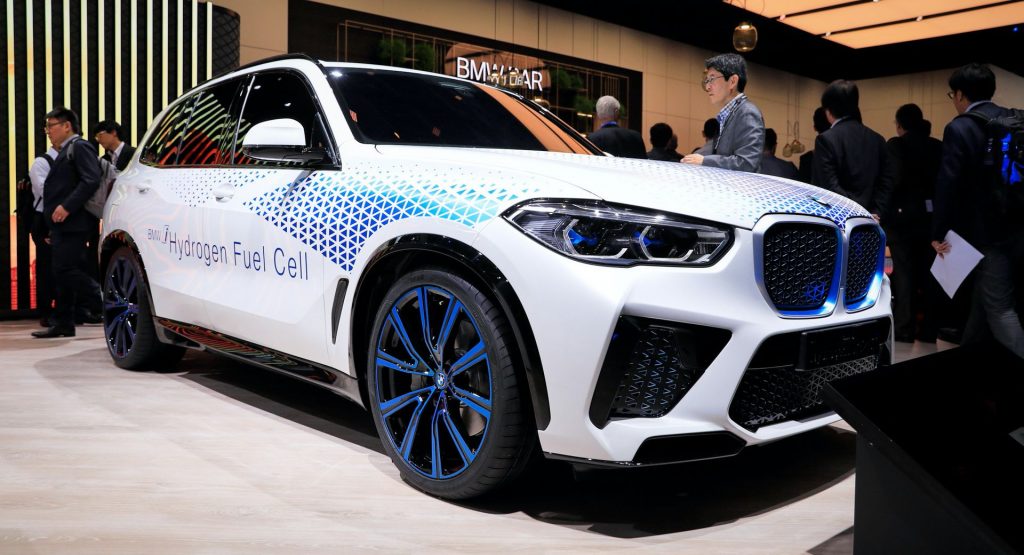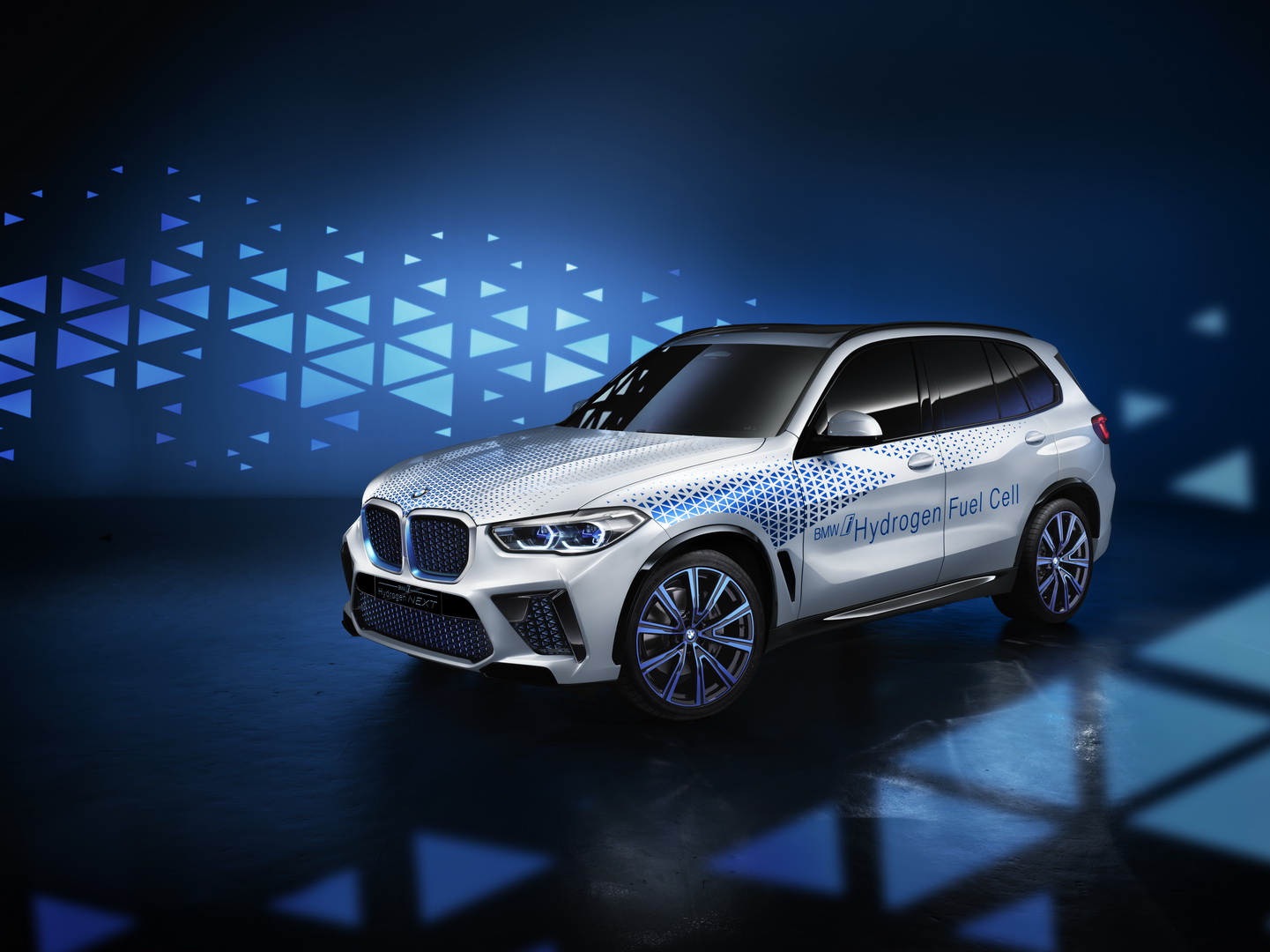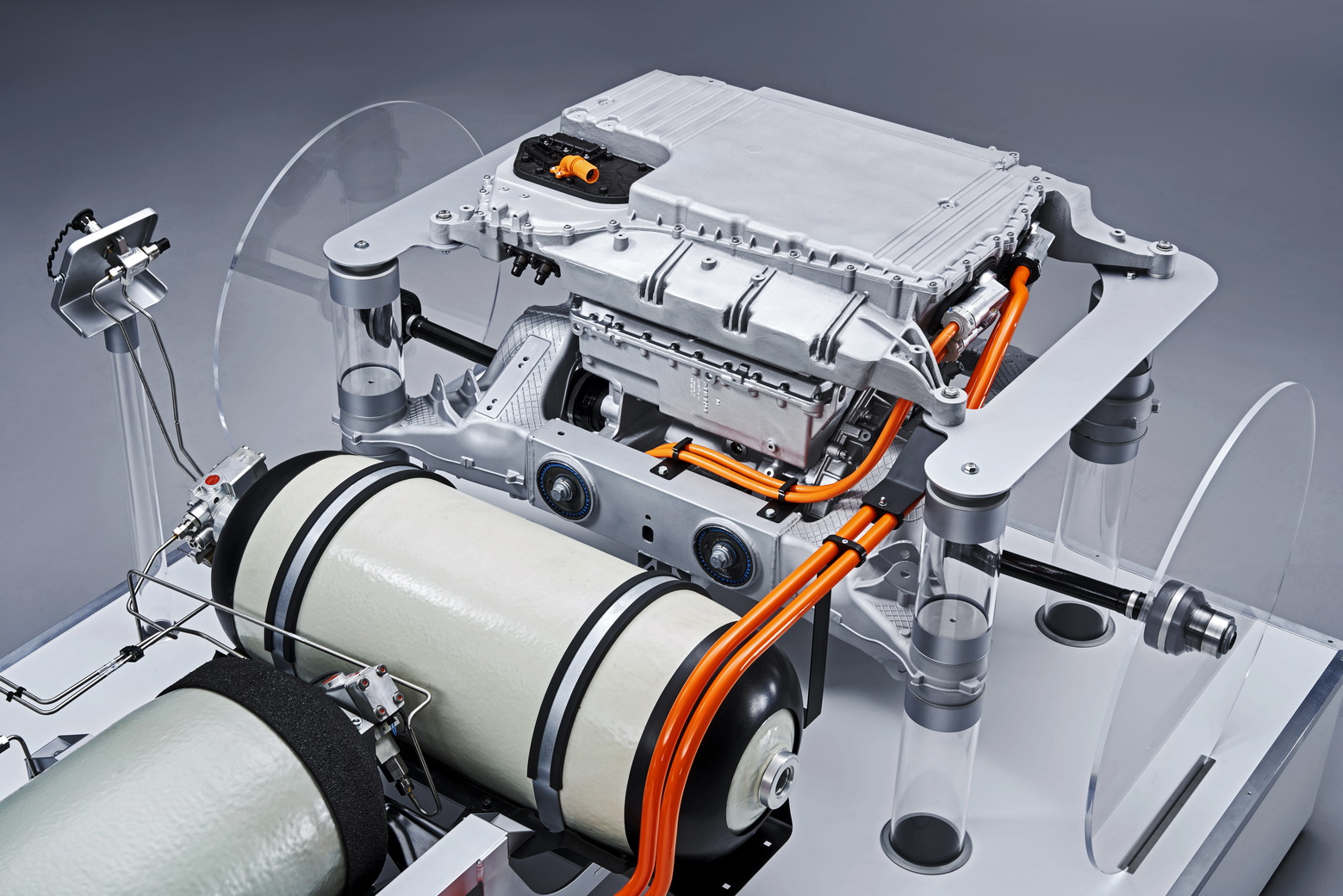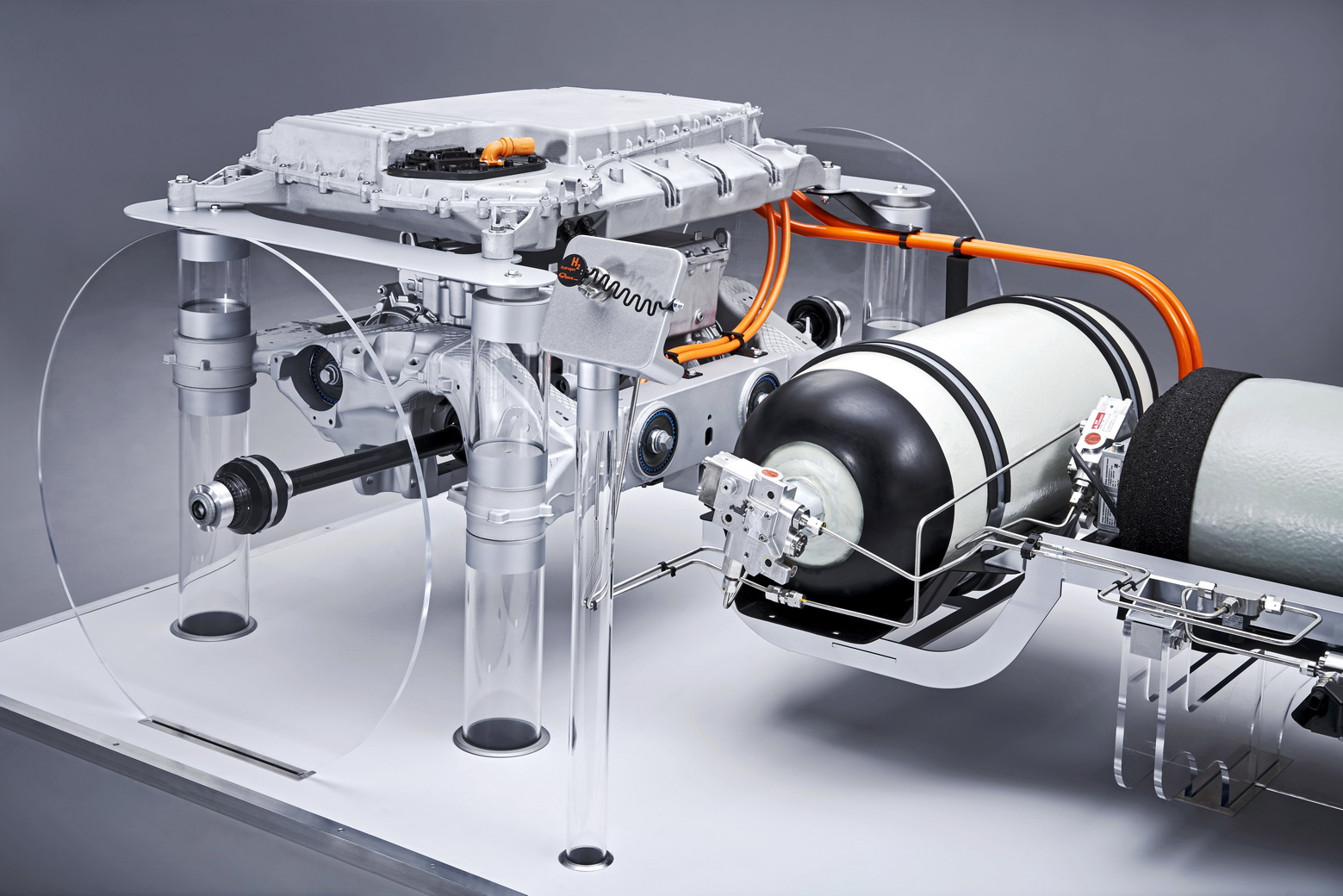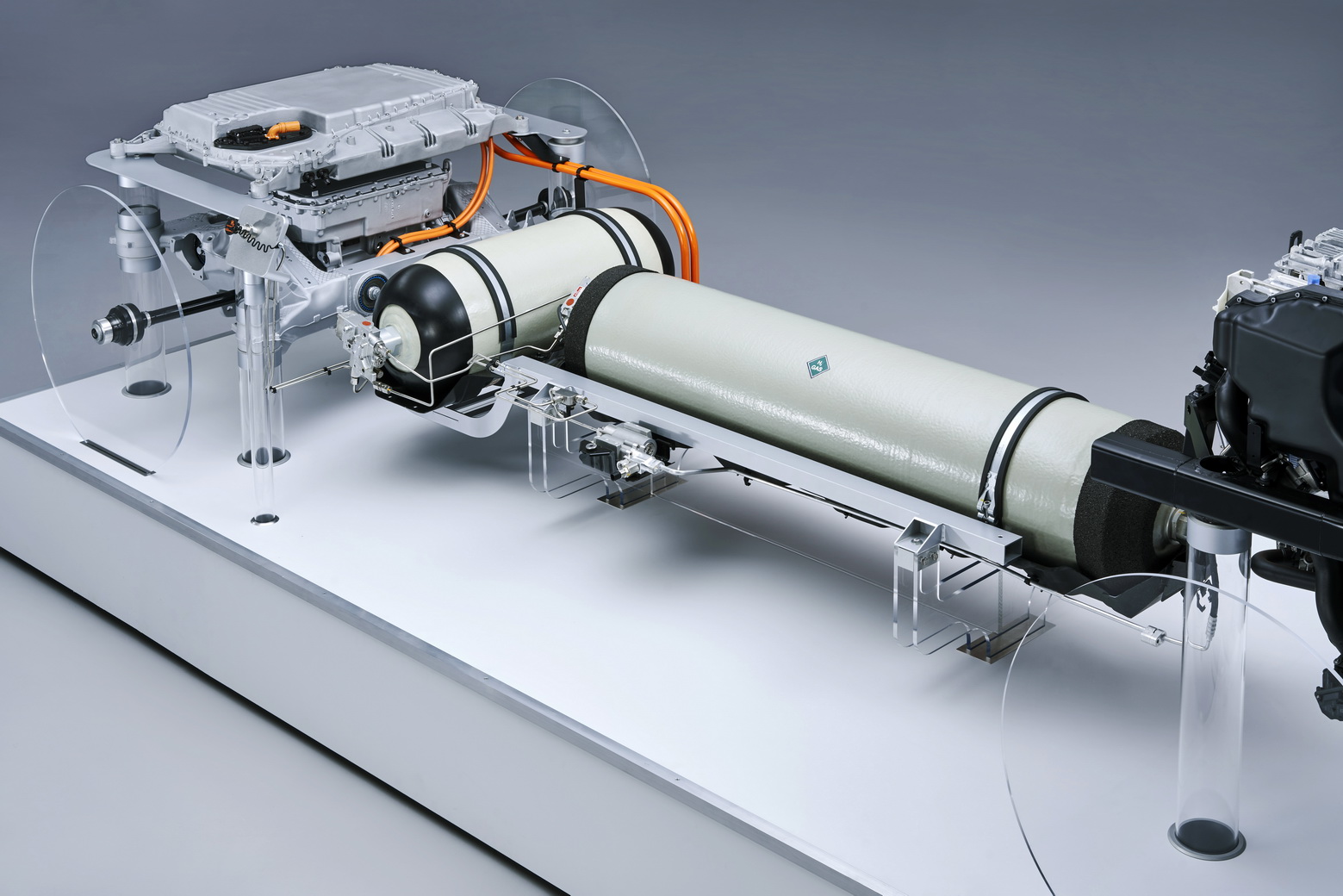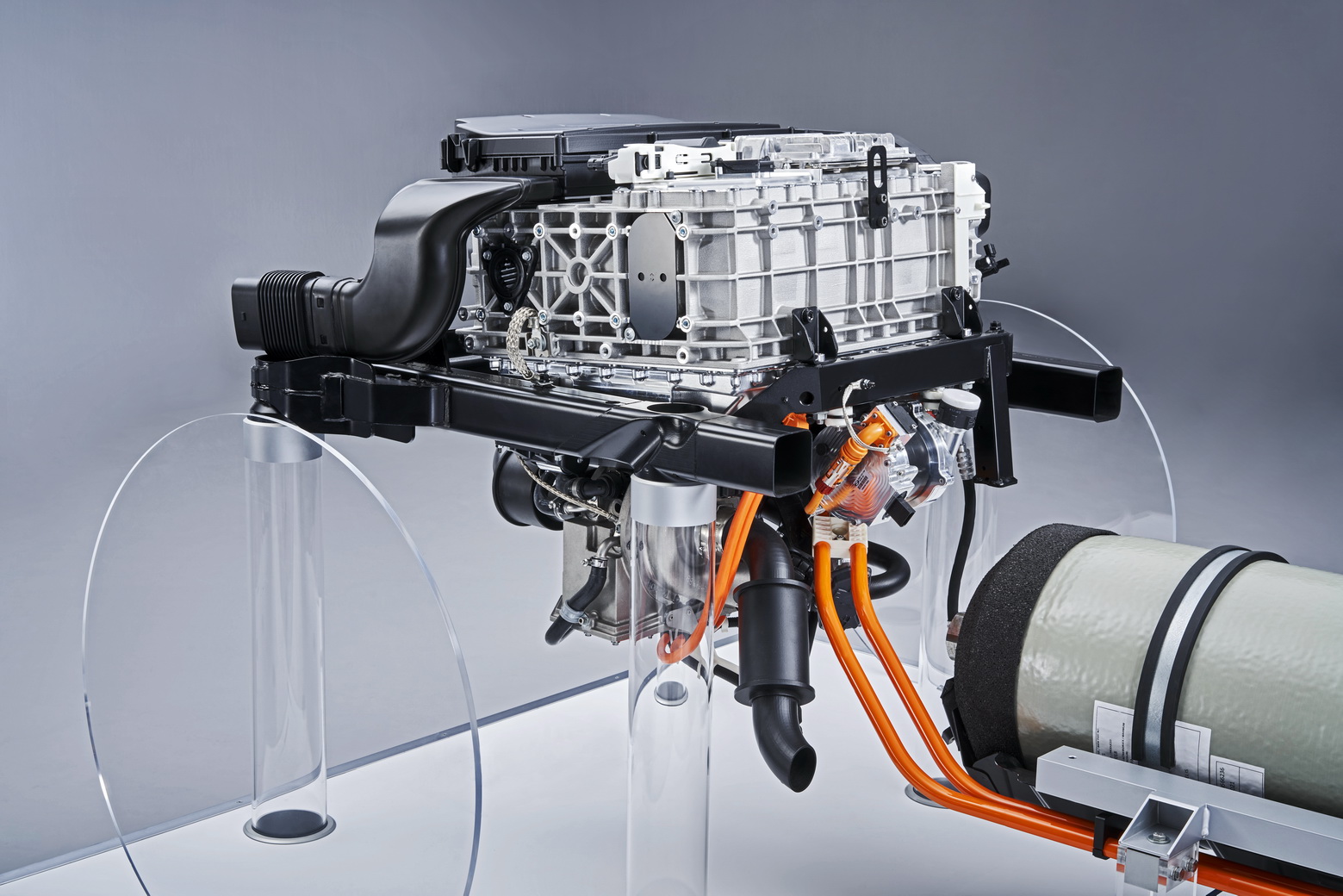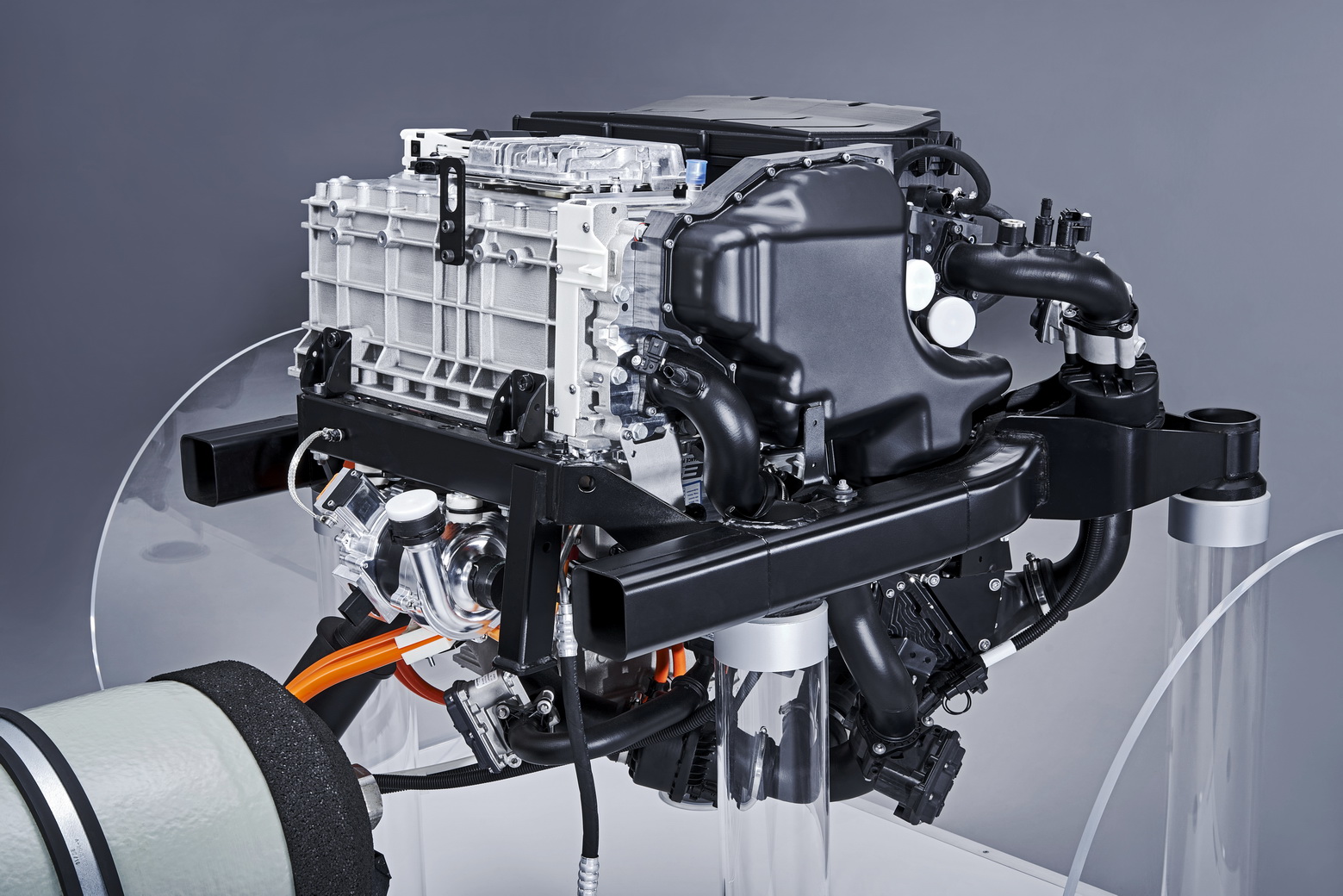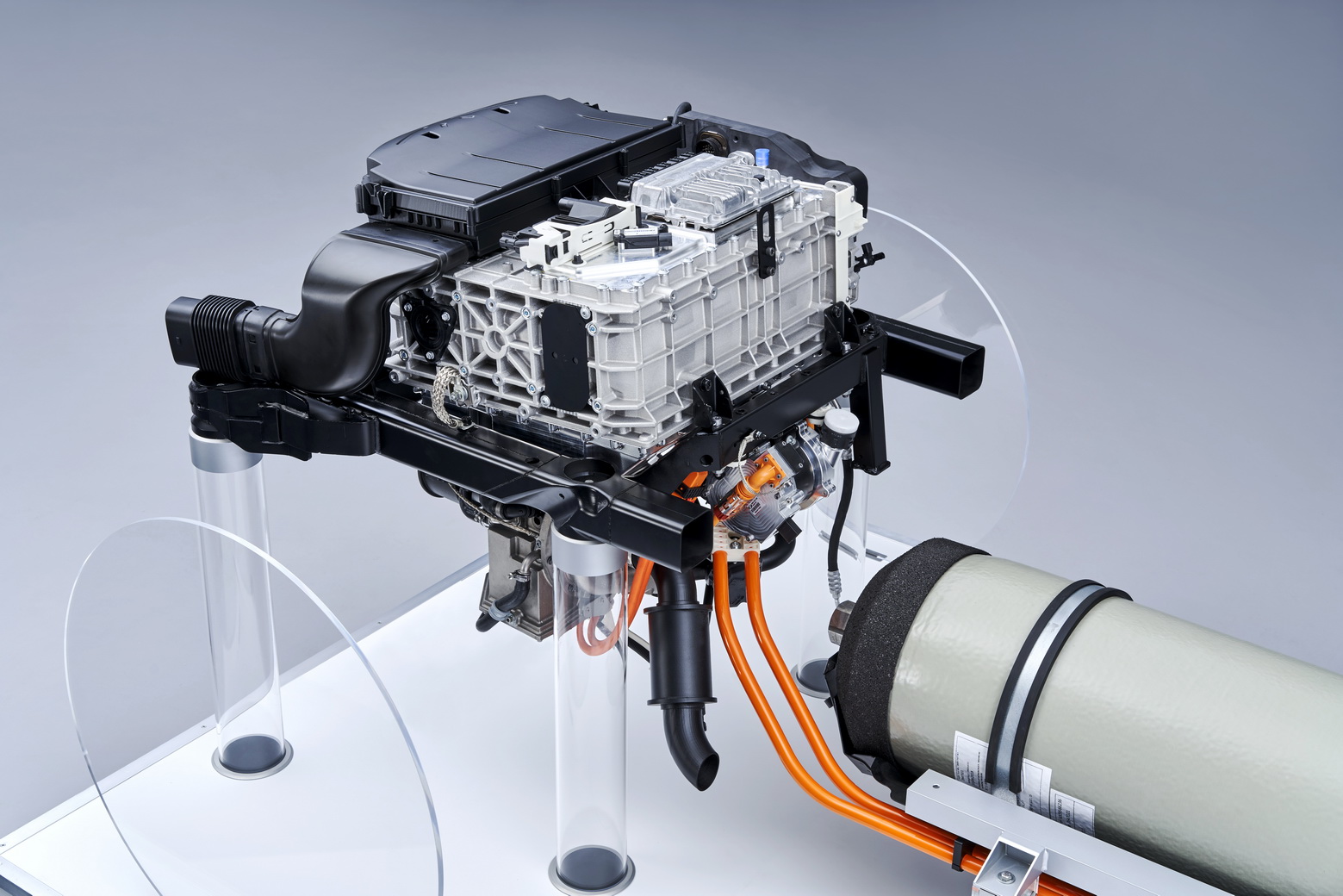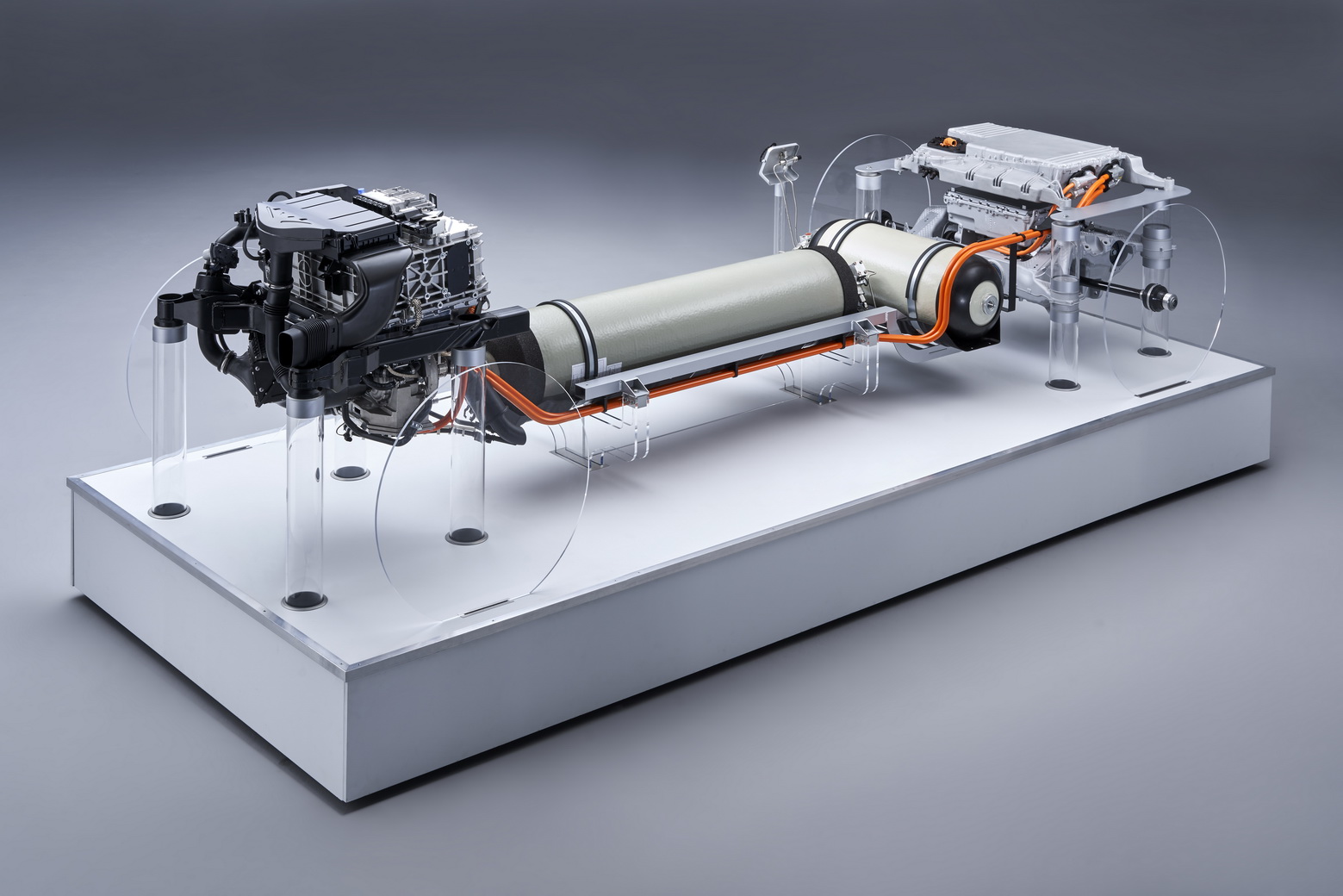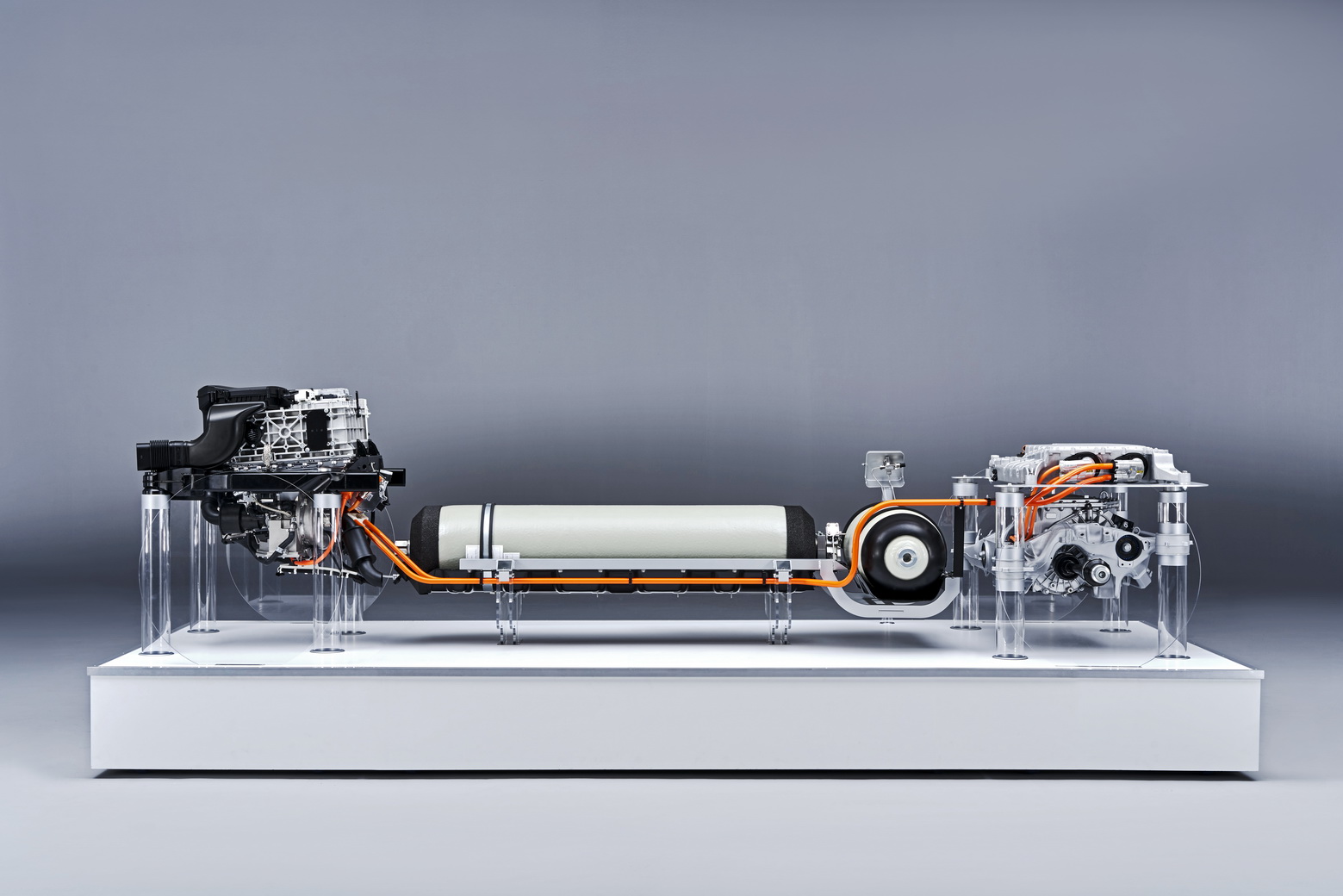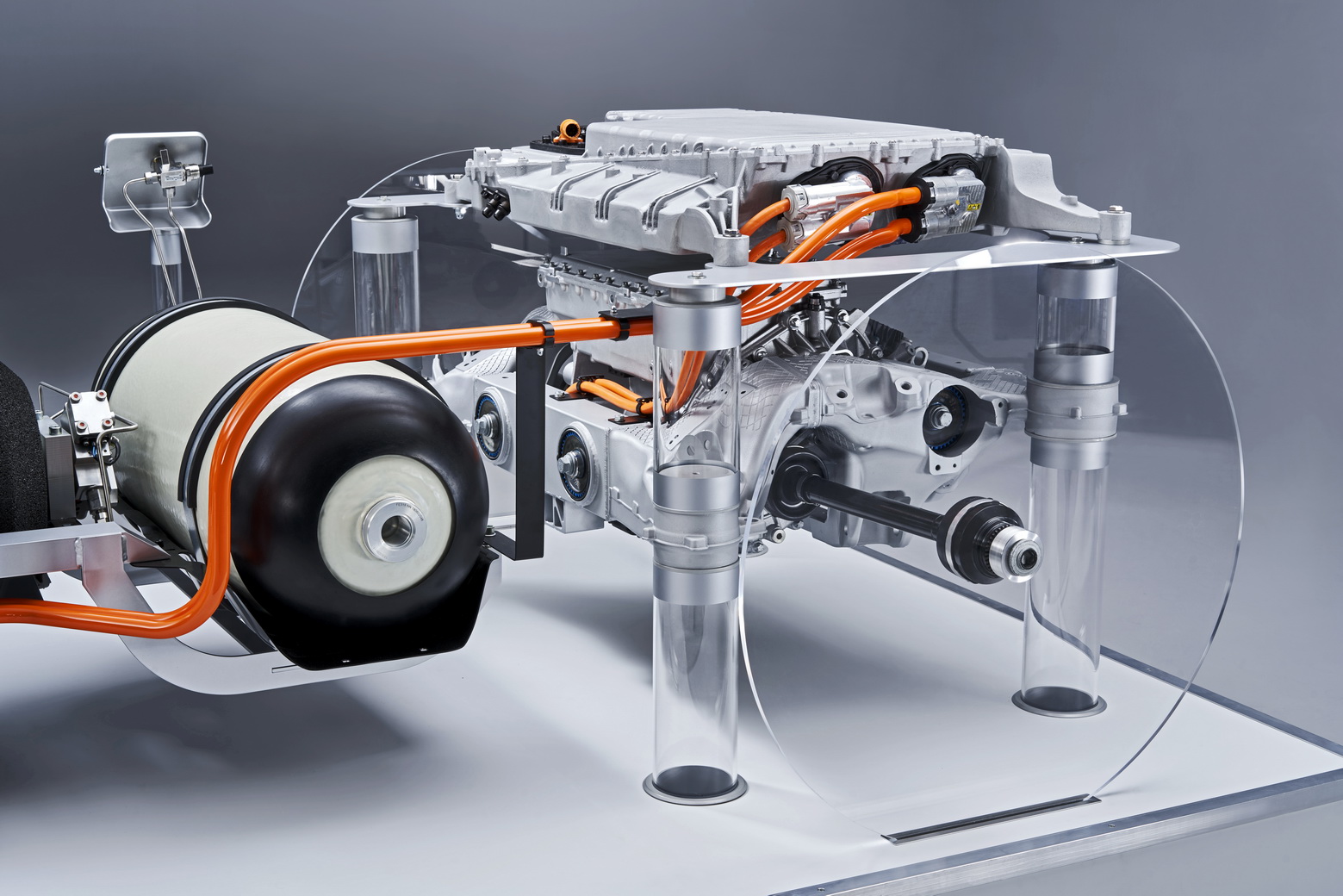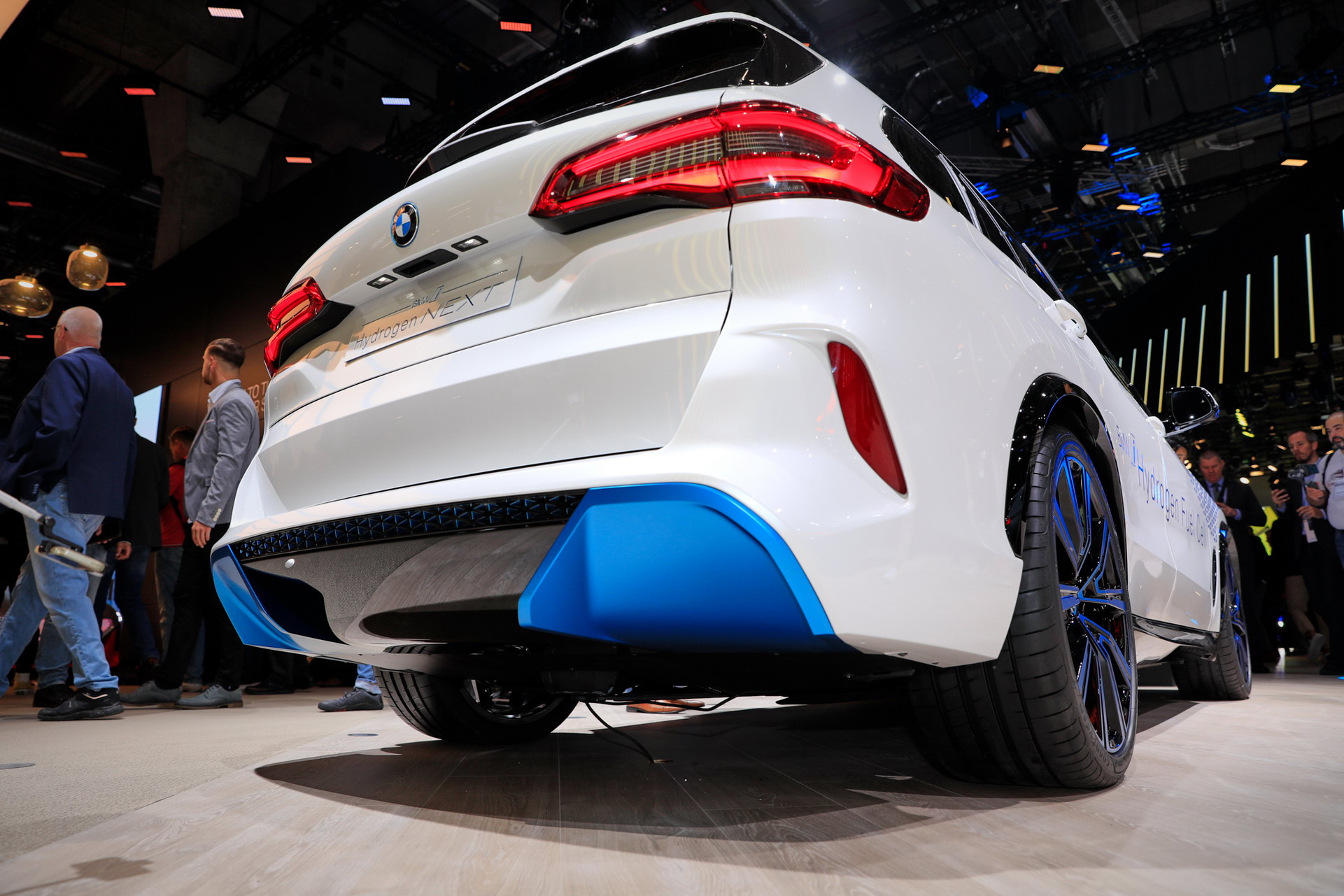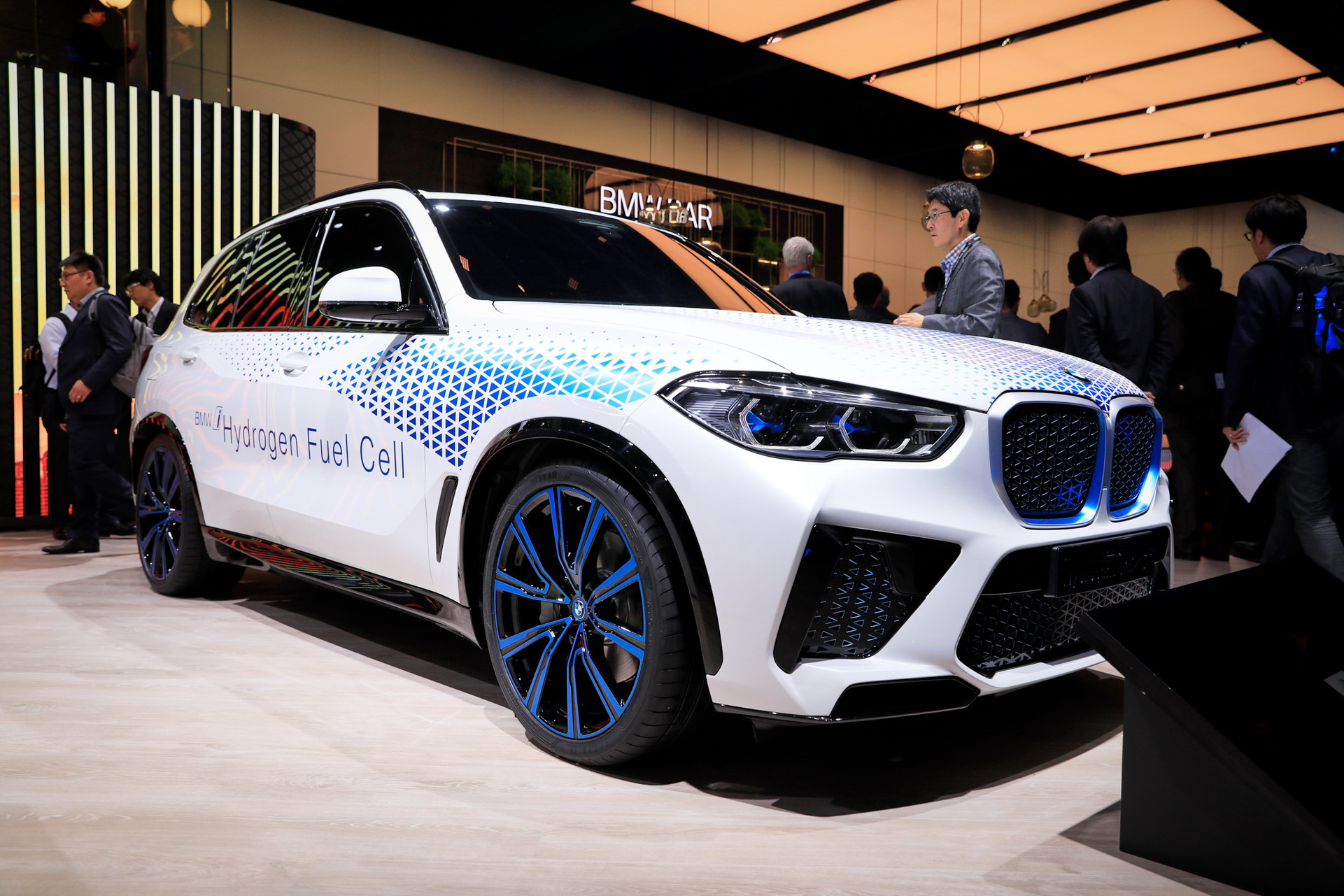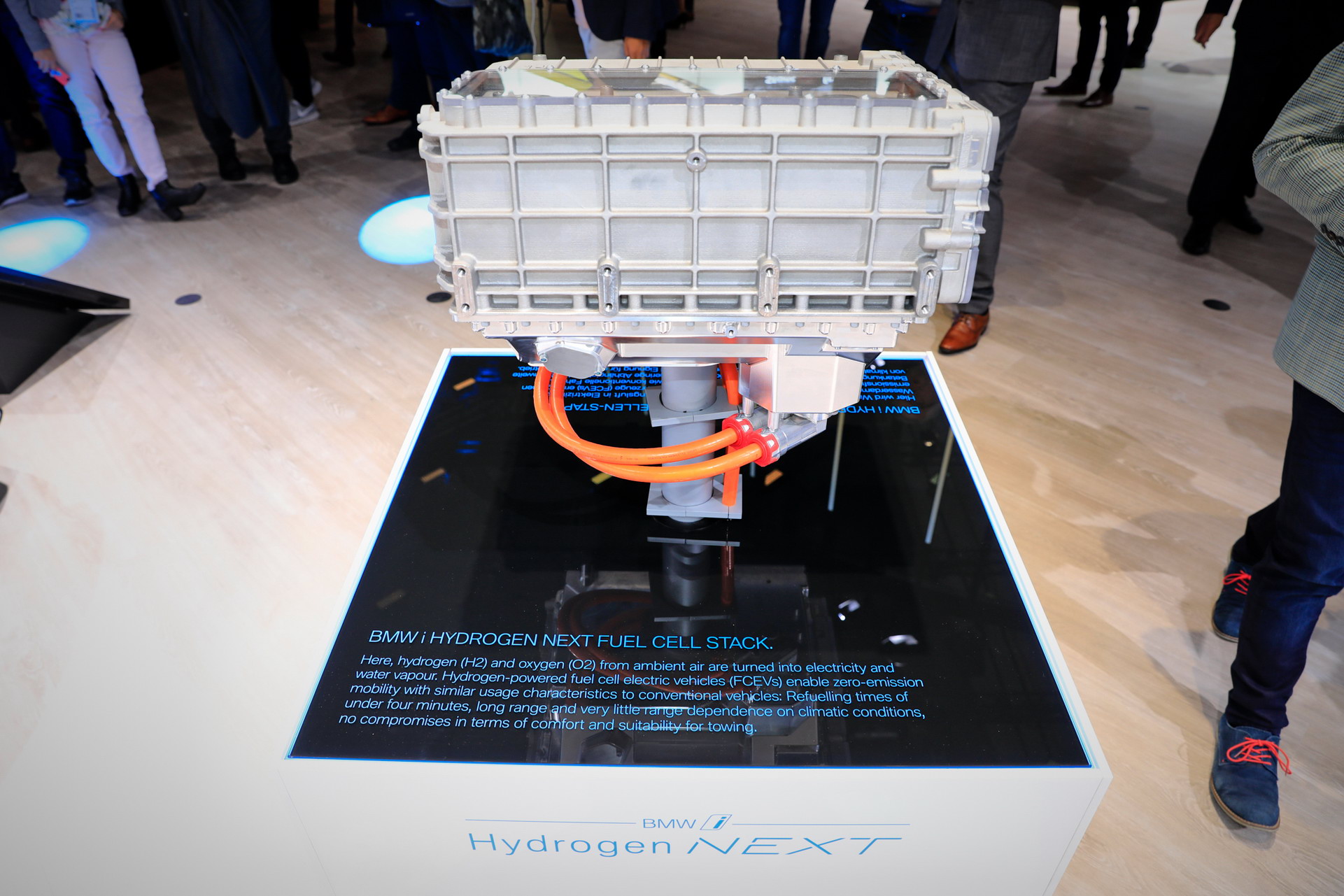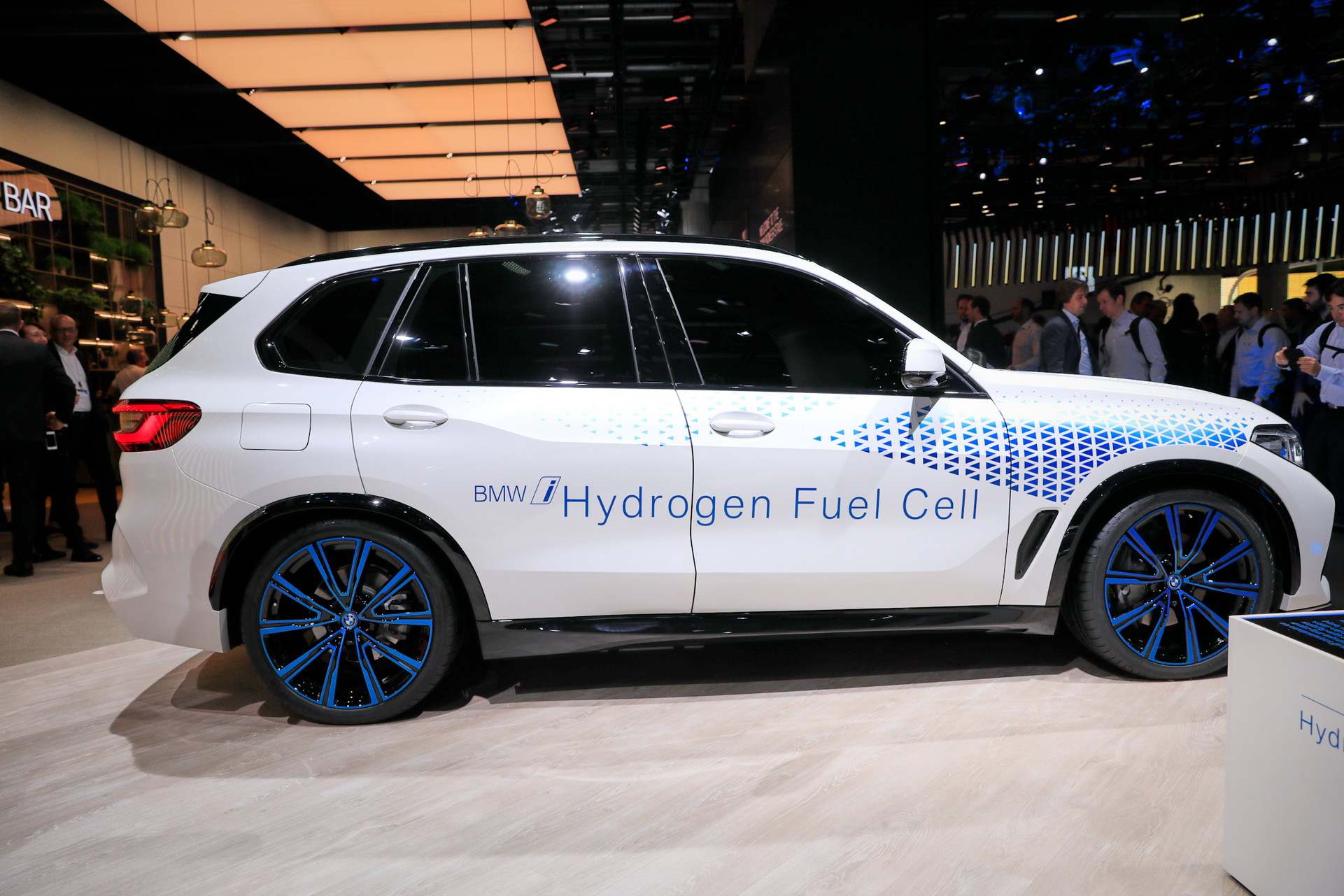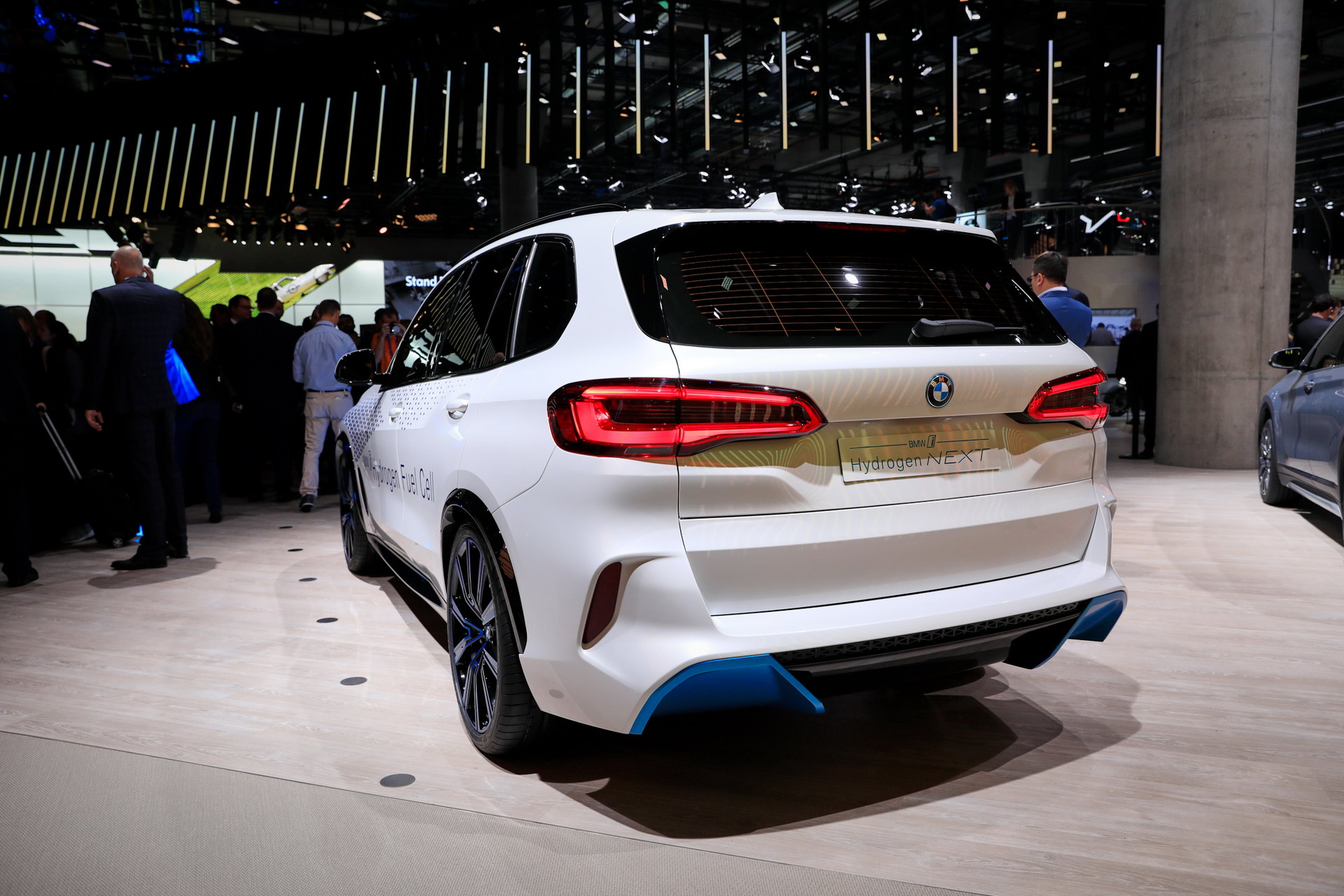BMW has announced plans to launch a hydrogen-powered version of the current X5 in 2022, which will be offered in a limited number.
Previewed by the i Next Hydrogen Concept at the 2019 Frankfurt Motor Show, it will have a peak output of 374 PS (369 HP / 275 kW). Refueling the tanks with hydrogen will take 3 to 4 minutes and the vehicle will emit nothing more than water vapors.
“This hydrogen fuel cell electric powertrain will be piloted in a small series based on the current BMW X5 that the BMW Group plans to present in 2022”, BMW explained. “A customer offer powered by hydrogen fuel cell technology will be brought to market at the earliest in the second half of this decade by the BMW Group, depending on the global market conditions and requirements.”
Read More: BMW Says Hydrogen-Powered Vehicles Could Be As Cheap As ICE Models By 2025
The powertrain is based on the electric unit that will debut in the upcoming iX3, which will feature a 74 kWh battery pack, feeding the 286 PS (282 HP / 210 kW) and 400 Nm (295 lb-ft) of torque motor that powers the rear wheels. The zero-emission version of the premium compact crossover will be able to travel for more than 440 km (273 miles) on the WLTP cycle, as the automaker has already confirmed.
Developed together with Toyota, as part of a partnership that dates back to 2013, the hydrogen technology that will be deployed in the i Hydrogen Next will feature fuel cells coming from the cooperation with the Japanese auto firm and the fuel cell stack and overall system made by the BMW Group. The fuel cell system generates up to 170 PS (168 HP / 125 kW) from the chemical reaction.
“The hydrogen fuel cell technology could quite feasibly become the fourth pillar of our powertrain portfolio in the long term”, said Member of the Board of Management, Klaus Frohlich. “The upper-end models in our extremely popular X family would make particularly more suitable candidates here.”
This is a direct hint at FCV variants of the X6 and X7, which are believed to be a few years away. But why wait that long when they have the technology at hand? Because “hydrogen as energy carrier must first be produced in sufficient quantities at a competitive price using green electricity”, added Frohlich. “Hydrogen will then be used primarily in applications that cannot be directly electrified, such as long-distance heavy duty transport.”
On a final note, BMW’s electrified vehicle family will expand by 2023 with a total of 25 different models, including “at least 12” with BEV powertrains.



